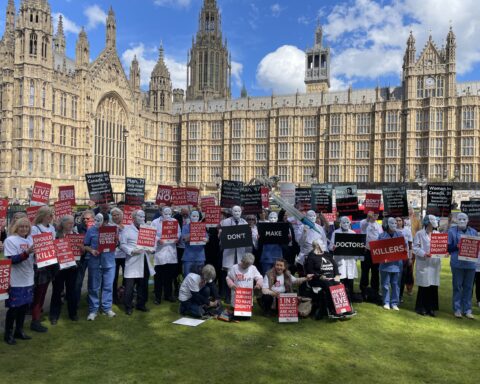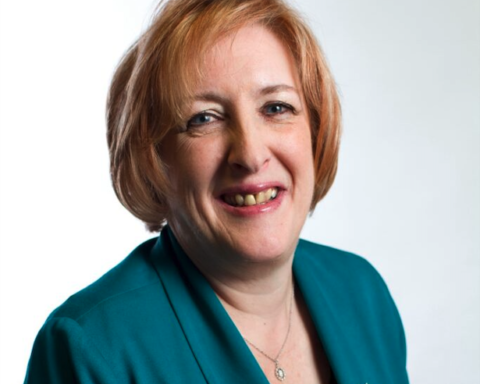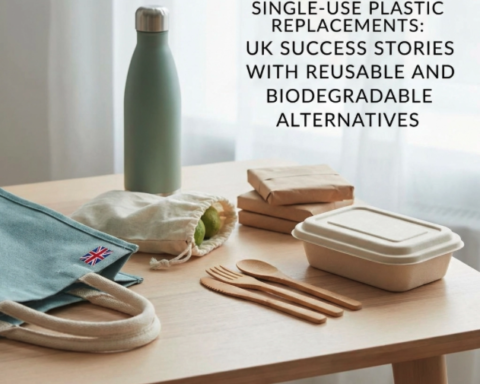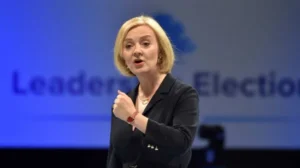
Mary Elizabeth Truss News News
Mary Elizabeth Truss News
Mary Elizabeth Truss, commonly known as Liz Truss, is a British Conservative politician and former Prime Minister of the United Kingdom. She served as MP for South West Norfolk since 2010. Truss held various cabinet roles, including Foreign Secretary, and briefly led the country in 2022, focusing on economic growth and deregulation.
Latest News
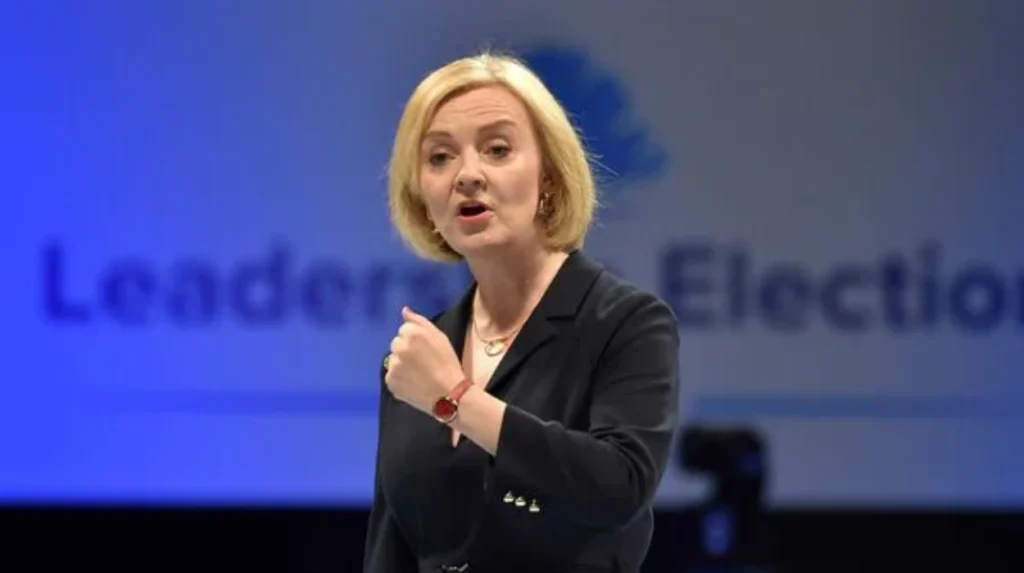
Mary Elizabeth Truss Net Worth
Mary Elizabeth Truss net worth: $9.4 million
More
Kemi Badenoch ‘unlikely to win’ election, warns Liz Truss
by Federica CalabròSeptember 3, 2025

Liz Truss says UK must follow a Maga-like strategy
by ReporterFebruary 20, 2025
More News

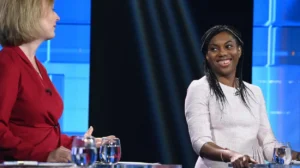
Kemi Badenoch ‘unlikely to win’ election, warns Liz Truss
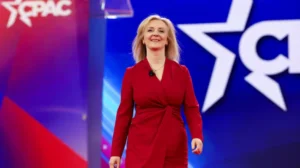
Liz Truss says UK must follow a Maga-like strategy
Opinion
More News
Today, members of the House of Lords have a straightforward choice: support Amendment 17A★ to the Tobacco and Vapes Bill and tackle
MoreEver thought about working for an MP? Around each Member of Parliament is a small team of staff, split between their parliamentary
MoreOnline safety policy reform gains urgency in Washington 2026 as lawmakers revisit digital protection standards for major platforms. Congressional hearings focus on
MoreLord Peter Mandelson was arrested at his Camden home on Monday, February 23, 2026, by plain-clothes Metropolitan Police officers. The arrest followed
MoreThe Education Secretary Bridget Phillipson has announced comprehensive reforms to the Special Educational Needs and Disabilities framework. The White Paper establishes a
MoreGermany advances sweeping reforms under Germany digital regulation as lawmakers debate stricter online safety standards in 2026. The Berlin proposal targets child
MoreThe Supreme Court ruling in Washington 2026 places renewed focus on executive power limits in trade policy. Justices clarified the boundaries of
MoreFrance political tensions intensify in Paris in 2026 following the killing of a far right activist and plans for a major public
MoreThe last couple of weeks, have been dominated by one story, the release of the so-called Epstein Files – a massive cache
MoreThe Chagos Defiance: Starmer vs. Trump in a High-Stakes Diplomatic Face-Off When it comes to international diplomacy, few things are as delicate
MoreMary Elizabeth Truss, known as Liz Truss, is a British politician who has served as the Prime Minister of the United Kingdom and Leader of the Conservative Party for a brief period of 50 days from September to October 2022. Mary Elizabeth Truss was born on July 26, 1975, in Oxford, England. Before becoming Prime Minister, Liz Truss served as the Secretary of State for Foreign, Commonwealth, and Develo Payment Affairs and the Minister for Women and Equalities from September 15, 2021, until she acceded to the post of Prime Minister on September 6, 2022. She was appointed to these positions by Boris Johnson, who was then the Prime Minister. Her tenure, marked by a controversial tax-cutting budget, ended in her resignation amidst a government crisis on October 20, 2022.
In their political career, Truss’s achievements included serving as Secretary of State for Environment, Food and Rural Affairs from 2014 to 2016, she implemented policies promoting sustainable farming and environmental protection, including the “Green Food Project” and “Ensuring a Resilient and Sustainable Agricultural Industry” project. She then served as Lord Chancellor and Secretary of State for Justice from 2016 to 2017, where she played a crucial role in negotiating the UK’s exit from the European Union.
The responsibilities of TrussAs as Prime Minister, leading the country’s response to the cost of living crisis affecting households and businesses. She has been recognized for her contributions with awards such as the “Food and Farming Industry Awards” for her work on sustainable agriculture and the “Justice Awards” for her efforts in criminal justice reform. Truss’s tenure as Prime Minister was short-lived, resigning just six weeks after taking office.
In recent news, Liz Truss has been in the spotlight for tackling the UK’s cost of living crisis affecting households and businesses. In response to the crisis, Truss announced a package of measures on September 8, 2022, aimed at providing support to both households and businesses. She introduced measures like a £150 council tax rebate, a £400 energy bill discount, and a £650 payment for vulnerable households. Additionally, a £1.5 billion support package for businesses was announced. Truss faced criticism for her response but defended her actions, aiming to assist those most affected. The £15 billion cost will be funded through borrowing and tax increases, focusing on alleviating financial burdens and supporting business growth amidst rising prices. The UK, September 2022, Liz Truss, politics, social-economic changes, and business are central to this news.
During her brief tenure as UK Prime Minister, Liz Truss grappled with economic challenges like rising inflation and energy costs. Truss’s response was a tax-cutting budget, but it was met with skepticism and financial market turmoil. The Bank of England intervened to prevent a pension fund collapse, and Truss faced a rebellion within the Conservative Party. Despite the chaos, Truss remained steadfast in her belief that her policies would increase growth and reduce debt. However, she accused a “powerful economic establishment” of thwarting her agenda, leading to her shortest tenure in British history, which ended in her resignation amidst a government crisis on October 20, 2022.
Liz Truss statements
Liz Truss, the UK Foreign Secretary, made a statement on the situation in Ukraine on March 28, 2022, in the House of Commons, London. She expressed her deep concern about the escalating conflict and the humanitarian crisis it has caused. Truss stated, “The UK will always stand up for the sovereignty and territorial integrity of Ukraine. We will continue to support the Ukrainian people in their fight for freedom and democracy.” She also announced new sanctions against Russia and urged other countries to take similar action. The statement was made during a debate on the situation in Ukraine, where Truss reiterated the UK’s commitment to upholding international law and promoting peace and stability in the region.
On September 8, 2022, in London, UK, Prime Minister Liz Truss unveiled a groundbreaking energy plan to stabilize energy bills at an average of £2,500 per year for the next two years, costing £150 billion. The event took place at the historic Downing Street, where Truss emphasized the importance of providing certainty on energy costs to households and businesses.
She stated,
“Our energy plan is a crucial step towards ensuring stability and growth in the face of rising costs.”
The comprehensive support package covers England, Scotland, and Wales, with similar measures anticipated in Northern Ireland. Truss also announced initiatives to enhance energy resilience, including the issuance of around 100 new oil and gas licenses and the lifting of the fracking moratorium for shale gas, a decision likely to spark debate due to past seismic concerns.
In September 2022, on the 15th, Liz Truss, as the Prime Minister of the United Kingdom, announced her fiscal statement at 10 Downing Street in London. The statement outlined a series of tax cuts totaling around £45 billion per year by 2026/27, with a focus on stimulating economic growth. Truss emphasized, “Our fiscal plan is designed to put money back in the pockets of hardworking families and unleash the potential of British businesses.” The Institute for Fiscal Studies analyzed the statement, noting its progressive nature with tax increases for the wealthy and increased spending on public services. Truss’s fiscal measures were introduced against a backdrop of rising inflation and energy costs impacting businesses and households.
On October 20, 2022, at 10 Downing Street in London, Liz Truss, the shortest-serving Prime Minister in British history, announced her resignation amidst a government crisis. In her statement, Truss cited the challenges of navigating economic turmoil, internal party dissent, and external pressures as reasons for stepping down.
She expressed regret over the impact of her policies on the country’s financial stability and acknowledged the need for a new leadership approach to address the ongoing challenges. In her statement, delivered in the historic setting of the Prime Minister’s residence, Truss expressed, “After careful consideration and in the best interest of the country, I have decided to step down as Prime Minister.” Truss’s resignation highlighted the complexities of governance and the demands of leadership in a rapidly changing world.
On November 15, 2022, in London, Mary Elizabeth Truss, delivered a statement at a press conference addressing her resignation and plans. During her speech, Truss expressed gratitude for the opportunity to serve as Prime Minister and outlined her commitment to advocating for economic reforms and social policies. She acknowledged the challenges faced during her tenure, particularly the cost of living crisis and economic turbulence.
Emphasizing the importance of unity and collaboration, Truss stated,
“We must work together to ensure that the UK remains a strong and prosperous nation.”
The press conference was attended by government officials, party members, and the media.
In her Autumn Statement on November 17, 2022, Liz Truss, the former Prime Minister of the United Kingdom, announced a series of economic measures aimed at addressing the country’s financial challenges. The statement, delivered at the Houses of Parliament in London, included a £10 billion investment in infrastructure projects to stimulate growth, a £5 billion fund to support small businesses affected by the pandemic, and a £2 billion package to boost green energy initiatives. Truss emphasized the importance of fiscal responsibility and outlined plans to reduce public debt while supporting key sectors.
She stated,
“We must take action now to ensure the long-term prosperity of our country and the security of our people.”
The Autumn Statement aimed to restore confidence in the economy and lay the groundwork for sustainable recovery.
On April 15, 2023, in a recent interview, Liz Truss, the former Prime Minister of the United Kingdom, defended her economic policies and attributed her downfall to the “deep state,” “technocrats,” “the establishment,” civil servants, and the Bank of England. She also outlined her vision for a transformed world, advocating for the abolition of the United Nations and endorsing Donald Trump’s reelection.
Truss’s shift towards a radical right-wing populist stance has included calls to abolish the U.K.’s Supreme Court and the Human Rights Act, along with urging the UK to exit the European Union. Throughout her tumultuous tenure, marked by financial market chaos and internal party strife, Truss has remained resolute in her beliefs, stating,
“I’m not here to be liked. I’m here to do what I believe is right for the country.”
On February 6, 2023, Liz Truss made a statement in the House of Commons, the lower house of the UK parliament, during a debate on the government’s economic policies. Truss accused a “powerful economic establishment” of obstructing her tax-cutting agenda, which led to her shortest tenure in British history. She argued that she was denied a “realistic chance” to implement her £45 billion tax-cutting plan, jointly proposed with Finance Minister Kwasi Kwarteng. Truss blamed both the country’s economic institutions and her party for her downfall, stating,
“I was not given a realistic chance to implement the policies that I had been elected to deliver, and I believe that is a great injustice”.
On April 1, 2023, Liz Truss, the former Prime Minister of the United Kingdom, made headlines with her anti-monarchy statement during a speech at the London School of Economics. Truss expressed her views on the monarchy, stating,
“It’s time for the UK to transition to a republic and move beyond the outdated institution of the monarchy.”
Her stance sparked intense debate and controversy across the nation, with both supporters and critics voicing their opinions. Truss’s statement marked a significant departure from traditional Conservative values and raised questions about the future of the monarchy in the UK.
Liz Truss speeches
On February 10, 2022, in Moscow, Russia, Foreign Secretary Liz Truss engaged in crucial talks with Russian Foreign Minister Sergei Lavrov regarding the escalating tensions over Ukraine. The event, known as the “Moscow Talks,” aimed to address the growing concerns of conflict and uphold Ukraine’s sovereignty and territorial integrity. Truss issued a stern warning to Russia, stating,
“Any attack on Ukraine will result in severe sanctions.”
Lavrov, in response, criticized the UK’s involvement as “just slogans.” Truss’s visit underscored the UK’s commitment to diplomatic efforts in preventing further escalation and maintaining peace in the region.
On July 19, 2022, at the Conservative Party Conference in Birmingham, UK, Liz Truss, the then-Secretary of State for Environment, Food and Rural Affairs, delivered a speech on the occasion of the party’s annual gathering. Truss expressed her vision for the UK’s food industry, stating,
“We import two-thirds of all of our apples. We import nine-tenths of all of our pears. We import two-thirds of our cheese. That is a disgrace!”
The speech, which would later be dubbed the “cheese speech,” became a source of mockery among Conservative workers in Parliament, with junior civil servants even creating a ritual called “cheese time” to watch the video on YouTube. Despite the ridicule, Truss’s career trajectory remained unaffected, eventually leading her to become the Foreign Secretary.
On September 6, 2022, at Downing Street, London, Mary Elizabeth Truss delivered a significant speech and press release on the Gaza and Rafah Border events. Truss emphasized the UK’s commitment to supporting peace efforts in the region, stating,
“We stand firm in our resolve to promote stability and security in Gaza and Rafah.”
The event, titled “UK’s Commitment to Peace in Gaza and Rafah Border,” highlighted the importance of international cooperation and diplomacy in addressing the ongoing crisis. The speech underscored the government’s dedication to ensuring the safety and well-being of those affected by the conflict, reflecting the UK’s proactive stance on fostering peace and stability in the region.
On October 5, 2022, at the Conservative Party Conference in Birmingham, Liz Truss delivered a pivotal speech announcing a £1.5 billion support package to aid businesses in managing energy costs during the cost of living crisis. The event took place at the historic Downing Street, where Truss emphasized the importance of supporting businesses in challenging times.
Her impactful statement resonated,
“We will not leave businesses to face this challenge alone.”
Her speech aimed to provide relief to households and businesses affected by rising energy costs, demonstrating a commitment to addressing economic challenges.
Liz Truss delivered a pivotal speech at the Conservative Party Conference in London on October 6, 2022, amidst economic turmoil and internal party strife. Emphasizing growth as her top priority, Truss outlined plans for reform and deregulation to rebuild Britain, drawing on her childhood experiences in Paisley and Leeds.
She highlighted the importance of economic growth for individual prosperity and national advancement, positioning it as the cornerstone of her strategy. Truss’s speech underscored her alignment with Chancellor Kwasi Kwarteng and her opposition to what she termed the anti-growth coalition, signaling a determined stance on economic policy and national development.
Quoting Truss,
“We need to be unashamedly pro-growth, pro-business, and pro-innovation,”
she emphasized her commitment to fostering a thriving economy.
On October 20, 2022, outside Downing Street in London, Liz Truss delivered her resignation speech following a tumultuous 45-day tenure as Prime Minister. In her statement, Truss acknowledged the economic and international challenges she faced upon taking office, citing economic instability and the security threat posed by Putin’s actions in Ukraine.
She highlighted her efforts to address these issues through actions on energy bills and national insurance contributions, outlining a vision for a low-tax, growth-oriented economy post-Brexit. Truss’s resignation marked the end of her leadership, triggering a fresh leadership election to select her successor, ensuring the continuity of the country’s economic stability and national security.
Truss concluded her speech with the quote, “I believe it is in the best interest of the country that I step aside and allow a new leader to guide us through these challenging times.”
On October 25, 2022, in London, UK, Liz Truss, the UK’s shortest-serving Prime Minister, delivered her farewell speech outside Downing Street. During this significant occasion marking her resignation, Truss highlighted her government’s swift actions to support families and businesses while expressing optimism for the nation’s future.
Emphasizing her commitment to a low tax, high growth philosophy, she urged bold economic pursuits, stating,
“We need to be bold and ambitious, to drive growth and prosperity across our whole United Kingdom. I believe in the potential of this great country.”
Truss’s speech encapsulated her dedication to her political ideals and her vision for the country’s progress as she bid farewell to her brief tenure.
On May 17, 2023, Liz Truss, the former, delivered a speech at the Prospect Foundation in Taipei, Taiwan, during her visit to the island. The occasion was a gathering of foreign policy experts and officials, where Truss emphasized the need for free nations to uphold Taiwan’s freedom and prepare to back it up with tangible measures.
Truss stated,
“Taiwan is the frontline in the global struggle for freedom, and we must be prepared to back our words with actions.”
She advocated for increased defense cooperation to prevent conflict in the South China Sea and proposed the creation of an “economic NATO” – a network of free nations collaborating to develop economic countermeasures against China. Truss’s visit to Taiwan followed a pattern of foreign dignitaries traveling to Taiwan, often resulting in Chinese objections to any actions perceived as recognizing Taiwan’s sovereignty.
On September 18, 2023, during the annual conference on “The Future of the UK Economy,” Liz Truss, the former Prime Minister, delivered a speech at the Institute for Government in London. Liz Truss, the former Prime Minister, addressed pressing economic challenges facing the UK.
Truss stated,
“We must break out of the cycle of stagnation and low growth that has held us back for too long.”
She emphasized the necessity of reducing debt interest payments and increasing prosperity through policies like tax cuts and supply-side reforms. Truss’s speech underscored the critical importance of steering the UK towards sustained 3% annual growth within a decade, setting a clear vision for economic recovery and prosperity.
Who is Liz Truss?
Liz Truss former Prime Minister of the United Kingdom, who was born in Oxford, England, on July 26, 1975, to John Kenneth. Truss is Britain’s third female Prime Minister, after Margaret Thatcher and Theresa May. He holds a Bachelor of Arts in Philosophy, Politics, and Economics from Merton College. Her father was a junior research fellow in mathematics at Oxford University, and her mother was a nurse.
In 2000, she married Hugh O’Leary, a British accountant and finance director, and the couple has two daughters, Frances and Liberty. She has been the Member of Parliament for South West Norfolk since 2010. She has held various ministerial positions in the British government, including Chief Secretary to the Treasury, Secretary of State for International Trade and President of the Board of Trade, Minister for Women and Equalities, Secretary of State for Foreign, Commonwealth and Development Affairs, and Foreign Secretary.
Truss has also served as the Prime Minister of the United Kingdom from September 6 to October 20, 2022. In the race for the position of UK Prime Minister, Truss has been considered a top contender, giving tough competition to Rishi Sunak. Other rivals in the race include Penny Mordaunt and Ben Wallace.
Liz Truss’s biography is illustrated in the table below.
| Personal Information | |
| Full Name | Mary Elizabeth Truss |
| Birthday | 26 July 1975 (age 48) |
| Spouse | Hugh O’Leary (m. 2000 |
| Number of Children | 2 |
| Position | former Prime Minister of the United Kingdom |
| Political Party | Conservative (since 1996) |
| Education | Merton College, Oxford (BA) |
| Political Career | |||
|---|---|---|---|
| Position | Term | Preceded by | Succeeded by |
| Prime Minister of the United Kingdom | 6 September 2022 – 25 October 2022 | Boris Johnson | Rishi Sunak |
| Leader of the Conservative Party | 5 September 2022 – 24 October 2022 | Boris Johnson | Rishi Sunak |
| secretary of state for foreign, commonwealth, and development affairs | 15 September 2021 – 6 September 2022 | Dominic Raab | James Cleverly |
| Minister for Women and Equalities | 10 September 2019 – 6 September 2022 | Amber Rudd | Nadhim Zahaw |
| Secretary of State for International Trade | 24 July 2019 – 15 September 2021 | Liam Fox | Anne-Marie Trevelyan |
| Chief SecretaChief Secretary to the Treasury to the Treasury | 11 June 2017 – 24 July 2019 | David Michael Gauke | Rishi Sunak |
| Lord High Chancellor of Great Britain | 14 July 2016 – 11 June 2017 | Michael Gove | David Lidington |
| secretary of state for environment, food and rural affairs | 15 July 2014 – 14 July 2016 | Owen Paterson | Dame Andrea Jacqueline Leadsom |
| Parliamentary Under-Secretary of State for Childcare and Education | 4 September 2012 – 15 July 2014 | Sarah Teather | Sam Gyimah |
| Member of Parliament
for South West Norfolk |
6 May 2010 | Christopher James Fraser, |
Liz Truss Family
Liz Truss parents names were John Kenneth Truss and Priscilla Mary Grasby. She has three younger brothers, Chris, Patrick, and Francis. Her father, John Kenneth Truss, was born in 1947 in Watford, Hertfordshire, and his parents were Clifford Owers and Joyce Mary Birtwistle. On Liz’s paternal side, two notable women are Joyce’s mother and Liz’s great-grandmother, Mary Jane Driver, and her mother, Alice Driver. Mary Jane Driver was born in Lancashire in 1872 and was the oldest of five children.
Her father, Benjamin Driver, was a postmaster and newsagent. When Mary was just 33, her father died, leaving her mother Alice to care for their five children. Alice took on her husband’s professional responsibilities, working as a sub-postmistress and a newsagent to provide for her family. Liz Truss’s maternal grandfather, George Grasby, was a prisoner of war during World War II. He was held in a camp in Germany and returned to Yorkshire in 1921. George Grasby had a son named George Raymond and lived at 17 Adelphi Street, Great Driffield. After the war, George entertained crowds in Hull as a ventriloquist, a talent that was likely passed down in his family.
Local newspapers reported on his performances with his doll, Jack, from 1919 until 1939. Liz Truss’s parents were politically active and raised her and her siblings on a diet of “left of Labour” politics. They attended anti-Thatcher protests and Campaign for Nuclear Disarmament marches. Truss’s mother, Priscilla Truss, has been more supportive of her daughter’s political career, while her father, John Truss, a maths professor in Leeds, is said to be “so appalled” by his daughter’s “conversion to extreme right-wing politics” that it has impacted their relationship.
Truss’s parents divorced in 2003, and Truss has taken very different views on her daughter’s political career since then. Liz Truss has three siblings, two brothers and one sister. Her brothers are Chris Truss, a software engineer, and Patrick Truss, a lawyer. Her sister is Francis Truss, a doctor. Chris Truss was born on October 25, 1973.
Liz Truss is married to Hugh O’Leary, an accountant and father of two. The couple first met in 1997 at the Tory Party conference and married in 2000. They have two daughters, Frances and Liberty, who were born in 2006 and 2008, respectively. O’Leary has also harbored political ambitions, having stood for the Conservative Party in local elections sometimes, but unsuccessfully. The couple has been together for over two decades, despite Truss’s affair with another married Tory MP, Mark Field, in 2006. O’Leary has largely remained in the background during Truss’s political career and is known for his support of his wife.
Liz Truss education
Liz Truss spent her early years in Paisley, Scotland, and Leeds, England. Her family relocated frequently during her childhood, shaping her diverse educational background. When Truss was four years old, her family moved to Paisley, Scotland, where she attended West Primary School. At the age of six, the family spent a year in Burnaby, British Columbia, Canada, where Truss attended Parkcrest Elementary School while her father taught at Simon Fraser University. Upon returning to England, she enrolled at Roundhay School in Leeds, West Yorkshire, from 1985 to 1990.
Truss’s undergraduate education took place at Merton College, University of Oxford, from 1993 to 1996, where she studied philosophy, politics, and economics. Before attending Oxford, Truss’s parents had hoped she would study at the University of Cambridge, but she opted for Oxford as a form of teenage rebellion. Initially, she was pooled to the all-women’s St Hilda’s College, but she lodged complaints with both colleges, leading to her acceptance by Merton.
Throughout her university years, Truss was actively involved in the Liberal Democrats, serving as the president of the Oxford University Liberal Democrats in her first year and becoming a member of the national executive committee of Liberal Democrat Youth and Students (LDYS) in 1995. After leaving college, she worked as an accountant at Shell from 1996 to 2000.
Liz Truss’s political career
Liz Truss’s political career began in 1998 when she joined the Conservative Party and worked as an assistant to the Conservative MP for South West Norfolk, Richard Bacon. In 2006, she was elected as a councilor for the Greenwich London Borough Council, a position she held until 2010. In 2010, Truss was elected as the Member of Parliament (MP) for South West Norfolk. She served as Parliamentary Under-Secretary of State for Education and Childcare from 2012 to 2014. In 2014, she became Secretary of State for Environment, Food and Rural Affairs, a position she held until 2016. From 2016 to 2017, Truss served as Lord Chancellor and Secretary of State for Justice.
In 2017, she was appointed as Chief Secretary to the Treasury, a position she held until 2019. From 2019 to 2021, Truss served as Secretary of State for International Trade and President of the Board of Trade, as well as Minister for Women and Equalities. In 2021, she was appointed as the Secretary of State for Foreign, Commonwealth, and Development Affairs, a position she held until her resignation in 2022. Truss was appointed as the Prime Minister of the United Kingdom on September 6, 2022, but announced her resignation just six weeks later on October 25, 2022.
Truss’s political views are characterized by her alignment with neo-liberal, free-market MPs, leading to the term ‘Trussonomics’ for her economic approach. She has expressed admiration for Margaret Thatcher and her economic policies.
Truss has been liberal on social issues but critical of identity politics and cancel culture. She initially supported Britain remaining in the EU but shifted her stance post-Brexit. Truss has a mixed voting record on environmental issues and has been generally liberal on social issues, supporting gay marriage but voting in favor of repealing the Human Rights Act of 1998. Truss has been hawkish in foreign policy, voting for military action against ISIS/ISIL.
Political Party of Liz Truss
Liz Truss’s political affiliations have evolved over the years. She was initially a member of the Liberal Democrats Party before joining the Conservative Party in 1996. Truss’s transition to the Conservative Party marked a significant shift in her political alignment and paved the way for her subsequent political career. Throughout her tenure in various governmental roles, including serving as Prime Minister of the United Kingdom, Truss has been associated with the Conservative Party, actively participating in its policies and decision-making processes.
Truss’s political responsibilities within the Conservative Party have been extensive, reflecting her commitment to the party’s values and objectives. As a member of parliament for southwest Norfolk since 2010, Truss has played a crucial role in representing her constituents’ interests and advocating for the Conservative Party’s policies in parliament.
She has served in various ministerial positions, including parliamentary under-secretary of state for education and childcare, secretary of state for environment, food and rural affairs, lord chancellor and secretary of state for justice, chief secretary to the Treasury, international trade secretary and minister for women and equalities, and secretary of state for foreign, commonwealth and development affairs.
Truss’s responsibilities within the Conservative Party have also extended to shaping the party’s policy agenda, particularly in areas such as economics, foreign policy, and social issues. She has been known for her economic policy beliefs, which are largely aligned with Reaganomics, and have been termed ‘Trussonomics’ in the British press.
Liz Truss election results
Liz Truss won the 2017 General Election in the constituency of South West Norfolk with a vote count of 32,894, which represented a vote share of 62.8%. She defeated her closest competitor, Emily Blake of the Labour Party, who received 11,635 votes (22.2%). The other candidates in the election were Harry Gwynne of the UK Independence Party (UKIP), who received 4,054 votes (7.9%), and Josie Ratcliffe of the Liberal Democrats, who received 2,997 votes (5.8%). The total number of votes cast for all candidates was 52,570. The turnout for the election was 67.2%.
Liz Truss won the 2019 General Election with a majority of 26,195 votes, which represents 69.0% of the total votes cast. Her closest competitor was Emily Blake of the Labour Party, who received 18.1% of the votes. The other candidates in the election were Josie Ratcliffe of the Liberal Democrats, Pallavi Devulapalli of the Green Party, and Earl Elvis Of Outwell of the Official Monster Raving Loony Party. The total number of votes cast for Truss was 35,507, while the total number of votes cast for all candidates was 51,627. The turnout for the election was 65.6%.
Liz truss policies
- Liz Truss became Prime Minister in September 2022, implementing “Trussonomics” with tax cuts and deregulation. However, her policies faced criticism, leading to a decline in her approval ratings. She reversed the income tax cut for high earners and dismissed her Chancellor, Kwasi Kwarteng. Truss’s pragmatic China policy and energy supply diversification proposals have also faced challenges within her party.
- On October 3, 2022, Truss and Kwarteng abandoned their plan to abolish the 45p income tax rate for top earners due to criticism from financial markets and opposition parties. The cost of the policy was estimated to be £2 billion.
- Liz Truss, UK Prime Minister in 2022, implemented a “mini budget” with £45 billion in unfunded tax cuts, leading to financial market chaos and her resignation. She advocated for reducing corporation tax to 19% and abolishing the windfall tax, but faced criticism for her fiscal policy approach.
- Liz Truss, the former UK Prime Minister, has advocated for education reform during her tenure as Parliamentary Under-Secretary of State for Education and Childcare from 2012 to 2014. She has emphasized the importance of maths education, proposed reforms to A Levels, and advocated for post-qualification admissions to universities.
- Liz Truss, UK Prime Minister since September 6, 2022, introduced an energy plan to cap household and business energy bills at £2,500 per year for two years, funded by £100 billion in taxpayer funds. The plan includes measures to enhance energy resilience, such as launching new oil and gas licenses and lifting the fracking moratorium, with a focus on accelerating new energy sources.
- Liz Truss’s financial policy, Trussonomics, included a £45 billion package of unfunded tax cuts announced on September 23, 2022. The policy aimed to boost growth and reduce public debt but caused chaos in financial markets, leading to her resignation as Prime Minister after 44 days.
- Liz Truss’s financial policy, “Trussonomics,” announced on September 23, 2022, included tax cuts like abolishing the top income tax rate, funded by borrowing, leading to public backlash and a significant drop in her approval rating.
- Liz Truss’s housing policy, implemented during her 49-day tenure as Prime Minister starting on September 6, 2022, focuses on allowing villages to expand without going through the planning system and investing in housing as part of her cost-of-living proposals. The policy aims to address affordability and availability issues in the UK housing market.
Liz Truss Controversies
Liz Truss’s Leadership Campaign: During her 2022 leadership campaign, Truss faced criticism for her handling of energy bills and her refusal to say she would fund any energy support for families at all. She was also accused of being an “arsonist” when it comes to fire safety and creating “Argentina on the Channel” instead of “Singapore on Thames.” Truss’s economic policies, including cutting taxes and business deregulation, have been controversial and have faced criticism from various quarters.
4,000-word Telegraph Essay (2023): Truss defended her record in government and her low-tax philosophy in a 4,000-word essay, but faced criticism for her handling of energy bills and her refusal to say she would fund any energy support for families at all. She was also accused of being an “arsonist” when it comes to fire safety and creating “Argentina on the Channel” instead of “Singapore on Thames.” Truss’s economic policies, including cutting taxes and business deregulation, have been controversial and have faced criticism from various quarters
A11 Bat Bridges Criticism (2024): Liz Truss criticized the A11 Bat Bridges in her memoir, but appeared to misunderstand their purpose. The bridges were intended to provide a reference point for bats using sonar to avoid the road, but Truss believed they were meant for bats to climb over. Research has shown that the bridges are not fulfilling their intended purpose, with most bats using them at unsafe heights.
Liz truss facts
- Liz Truss was born in Oxford, England, on July 26, 1975.
- She is the daughter of John Kenneth Truss, a mathematics professor, and Priscilla Grasby, a nurse and teacher.
- Truss was the youngest female cabinet minister in UK history.
- She met her husband, Hugh O’Leary, at the 1997 Conservative Party conference.
- Truss is generally liberal on social issues, having voted in favor of gay marriage, but has voted in favor of repealing the Human Rights Act of 1998.
- Truss has been a Member of Parliament for South West Norfolk since 2010.
- She supported Britain remaining in the EU ahead of the 2016 Brexit referendum but changed her position in the wake of the results and has since supported Brexit.
- She has held various ministerial positions, including Secretary of State for Environment, Food and Rural Affairs, Lord Chancellor and Secretary of State for Justice, Chief Secretary to the Treasury, Secretary of State for International Trade, and President of the Board of Trade.
- Truss is known for her neo-liberal, free-market economic policies, termed ‘Trussonomics’.
- She became the Prime Minister of the United Kingdom in September 2022 but resigned after just 44 days, making her the shortest-serving prime minister in UK history.
Liz Truss life
Liz Truss and her husband, Hugh O’Leary, have been married for over 20 years. Despite facing challenges, including a public scandal involving an affair, their relationship has endured. O’Leary, an accountant, has been a supportive presence throughout Truss’s political career.
They have two daughters together, and Truss has described O’Leary as the “love of my life.” Their relationship has been a significant aspect of Truss’s personal and public life, with O’Leary accompanying her to various events and remaining engaged in political activities. Truss’s net worth is estimated to be £8.4 million (or around $13 million) in 2023. She has been criticized for her use of private government jets for travel, with official figures showing she racked up a £1.8 million bill for overseas travel on private government jets in 2022.
Truss has also been accused of wasting £500,000 of taxpayers’ cash by chartering a private jet to Australia. Truss and Johnson traveled separately on French-made Dassault 900LX business jets, replacing British-designed BAe 146 aircraft. The private jet model used by Truss and Johnson produces around 3,157 kg of CO2 emissions for a one-hour flight, totaling 12,628 kg for their round trips. This has raised concerns about the environmental impact and efficiency of using private jets for official travel.
As the Prime Minister of the UK, Liz Truss earns an annual salary of £164,080. This is made up of two different payments: £79,936 for her role as Prime Minister and an additional £84,144 for an elected MP of the nation. Truss owns multiple properties, including a three-bedroom detached house in Thetford, Norfolk, which she purchased for £180,000 twelve years ago, and a home in Greenwich, south-east London, where she has lived with her husband and two daughters for more than 15 years.
She also had access to the Prime Minister’s country residence, Chequers, as well as Grade I-listed Chevening House in Kent and No 1 Carlton Gardens in Westminster during her time as Foreign Secretary. Liz Truss’s Audi A8 is reportedly a bulletproof model, which can cost upwards of £300,000 or more, depending on the specific features and customizations.
The Audi A8 is a luxury car that is popular among politicians and business leaders for its safety, comfort, and performance. The Audi A8 is also known for its advanced technology and high-quality materials, making it a popular choice for those who prioritize luxury and security.
Liz Truss Contact details
- LinkedIn: https://www.linkedin.com/in/liz-truss-mp-a1b54a14/
- Twitter: https://twitter.com/trussliz
- Instagram: https://www.instagram.com/trussliz/
- Liz Truss’s email address is elizabeth.truss.mp@parliament.uk.
- The website link for Liz Truss is https://elizabethtruss.com/contact/
- Liz Truss’s phone number is 0207 219 3000.
- The office address for Liz Truss is 22 Chancery Lane, London, United Kingdom, WC2A 1LS.


